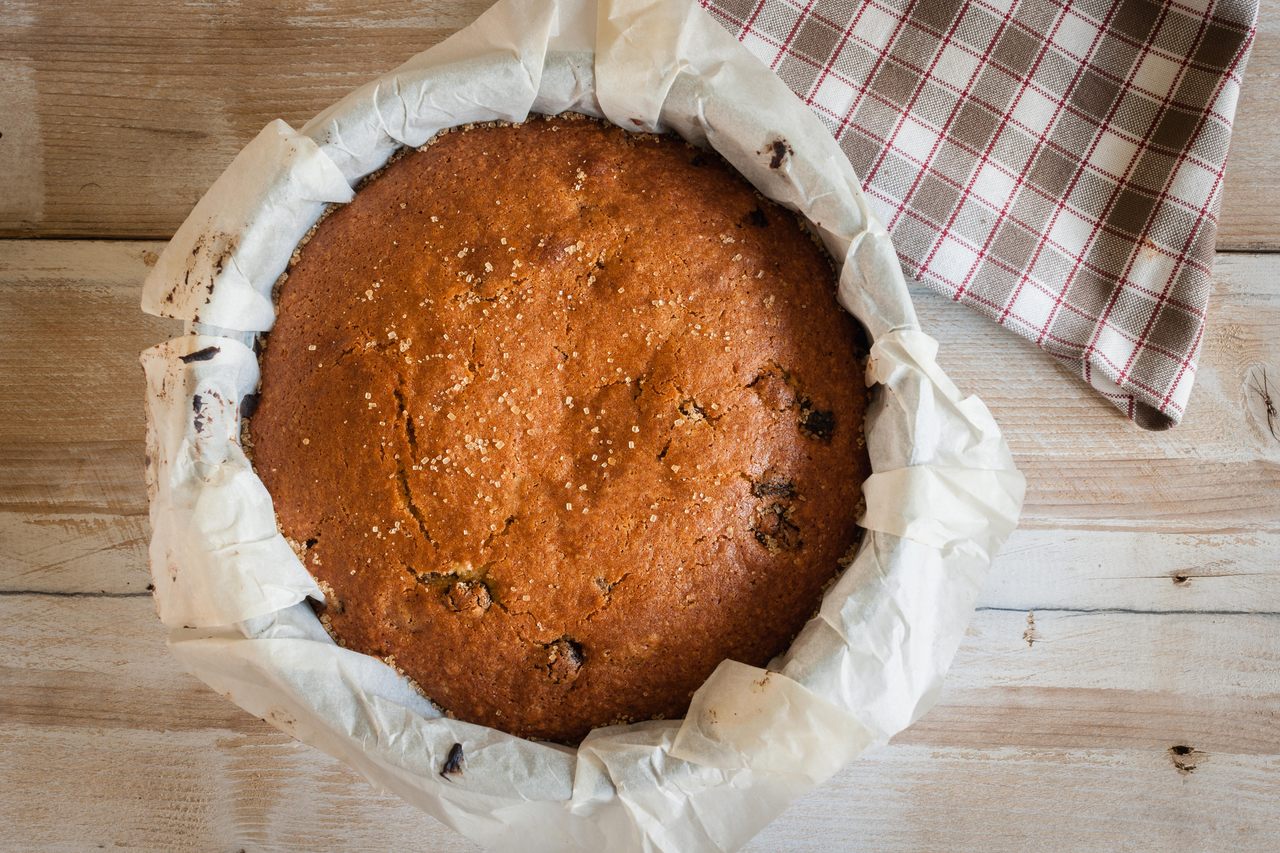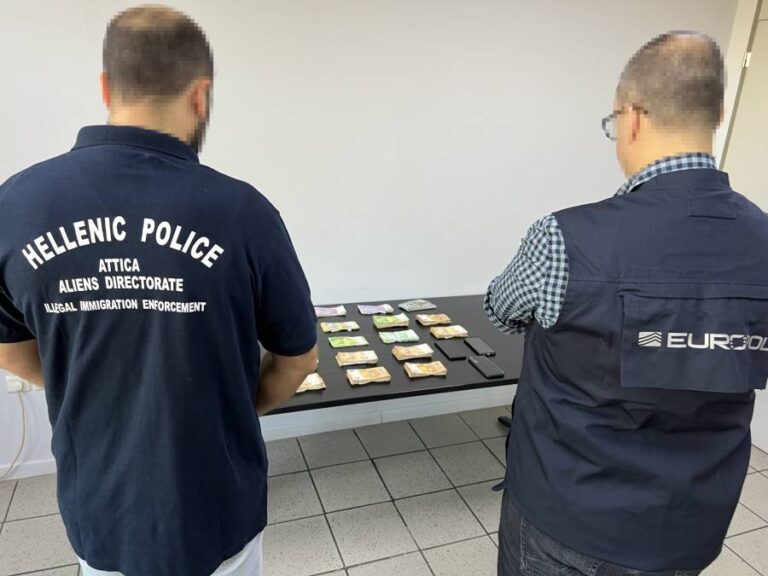WHEN ALEXANDRA PITTAS WAS IN the sixth grade, she lost a Bible that she had brought for church service at her Greek immersion school. It wasn’t just any Bible, either. It had been a gift from yiayia, her grandmother.
“I knew my mom was going to kill me,” recalls Pittas. “So my friend told me, you should pray to Agios Fanourious. And I was like, who?”
This was the first time Pittas had heard of St. Fanourious, the Greek patron saint of lost things. She spent the next week praying fervently. “I happened to be in the kitchen at church, and I went into a cabinet to get something. And there was the Bible, waiting for me,” she remembers. “I don’t even know why it would be in there! Or why I would have gone into this cabinet at all.”
Even after stumbling across the lost Bible, Alexandra’s interaction with Fanourious wasn’t over. As her friend reminded her, “Now you have to bake a bread.” She was referring to fanouropita, a traditional Greek cake. Greeks often use the words bread and cake interchangeably, as the suffix “pita” can describe both, but this is no ordinary baked good. Members of the Greek Orthodox church bake fanouropita after successfully praying to Agios Fanourious for the return of a lost item. On both sides of the Atlantic, Greeks and Greek Americans regularly bake this cake after finding everything from lost wedding rings to family dogs.
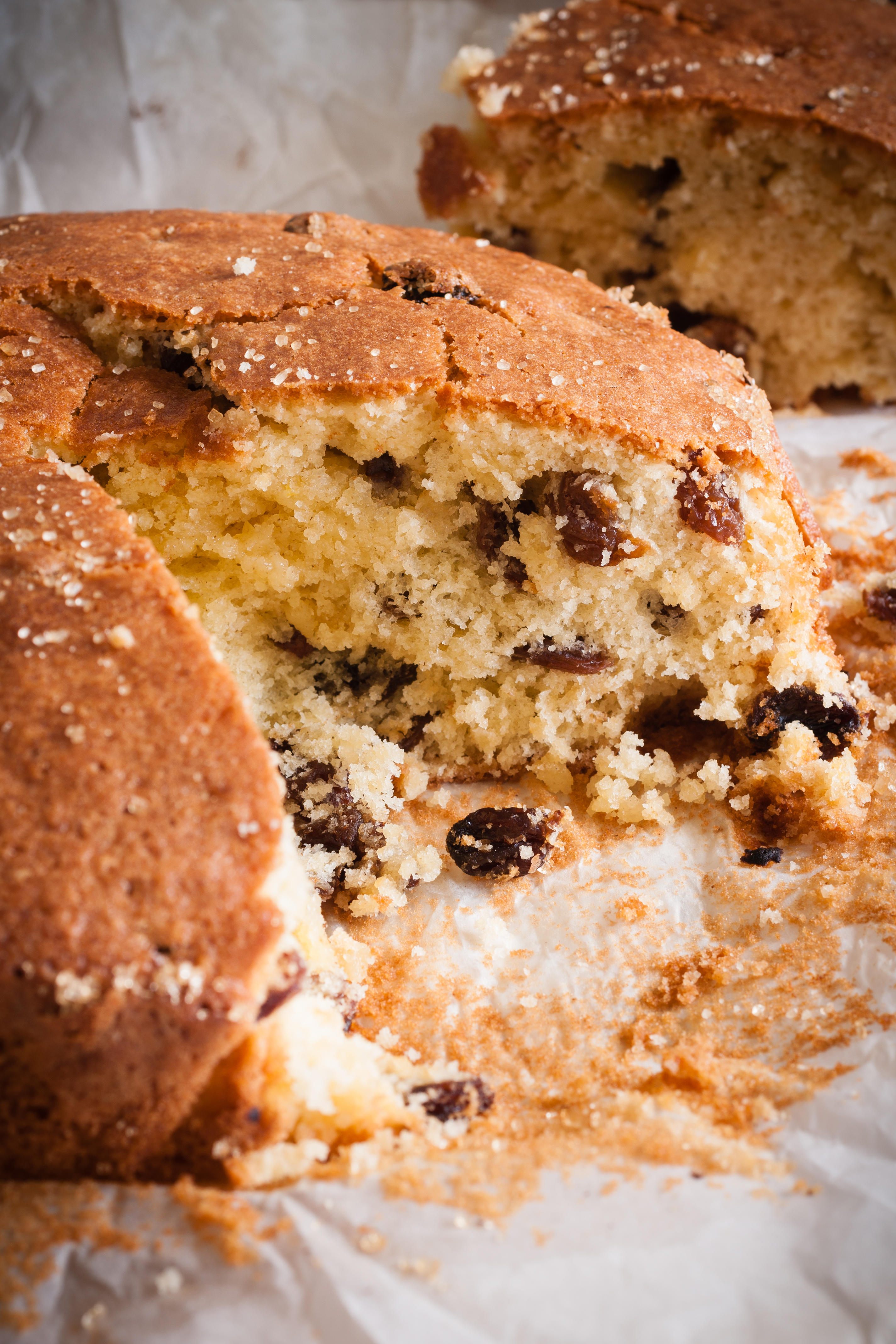
The tradition dates back centuries. Fanourious is a saint and martyr associated with the Greek island of Rhodes. Legend has it that a perfectly preserved painted icon, depicting a Christian youth and 12 scenes of his torture by Roman authorities, was found in a Rhodes church around the year 1500. (Another story claims that the icon was discovered in Cyprus, not Rhodes.) His name means “to reveal,” hence his association with the discovery of all that is lost. The cake is sometimes said to be prepared in honor of his mother, a cruel, sinful woman; that is, a “lost” soul that her son sought to save.
Fanouropita itself is a spiced snacking cake, often studded with nuts, raisins, or both. It’s always vegan, or, as referred to in the church, “Lenten,” meaning that it can be eaten on holy fast days because it doesn’t contain eggs or dairy. Variations abound, but in general, the recipe is olive oil-based, scented with orange juice and spices like cloves and cinnamon, then dusted with confectioners’ sugar to serve. The number of ingredients also matters. Depending on who you ask, people claim it should be seven, nine, or other numbers significant in the church. (Some people say you should serve it to seven people as well.)
It’s not uncommon in Greek baking for cakes and breads to take on a mythical symbolism. Other cakes are associated with individual saints, like the vasilopita, a cake made in honor of Agios Vasilios (Saint Basil) that’s served on New Year’s and Epiphany and contains a coin that will bring good luck to the recipient all year. There’s also prosphora, the communion bread that becomes the body of Christ during Divine Liturgy services.
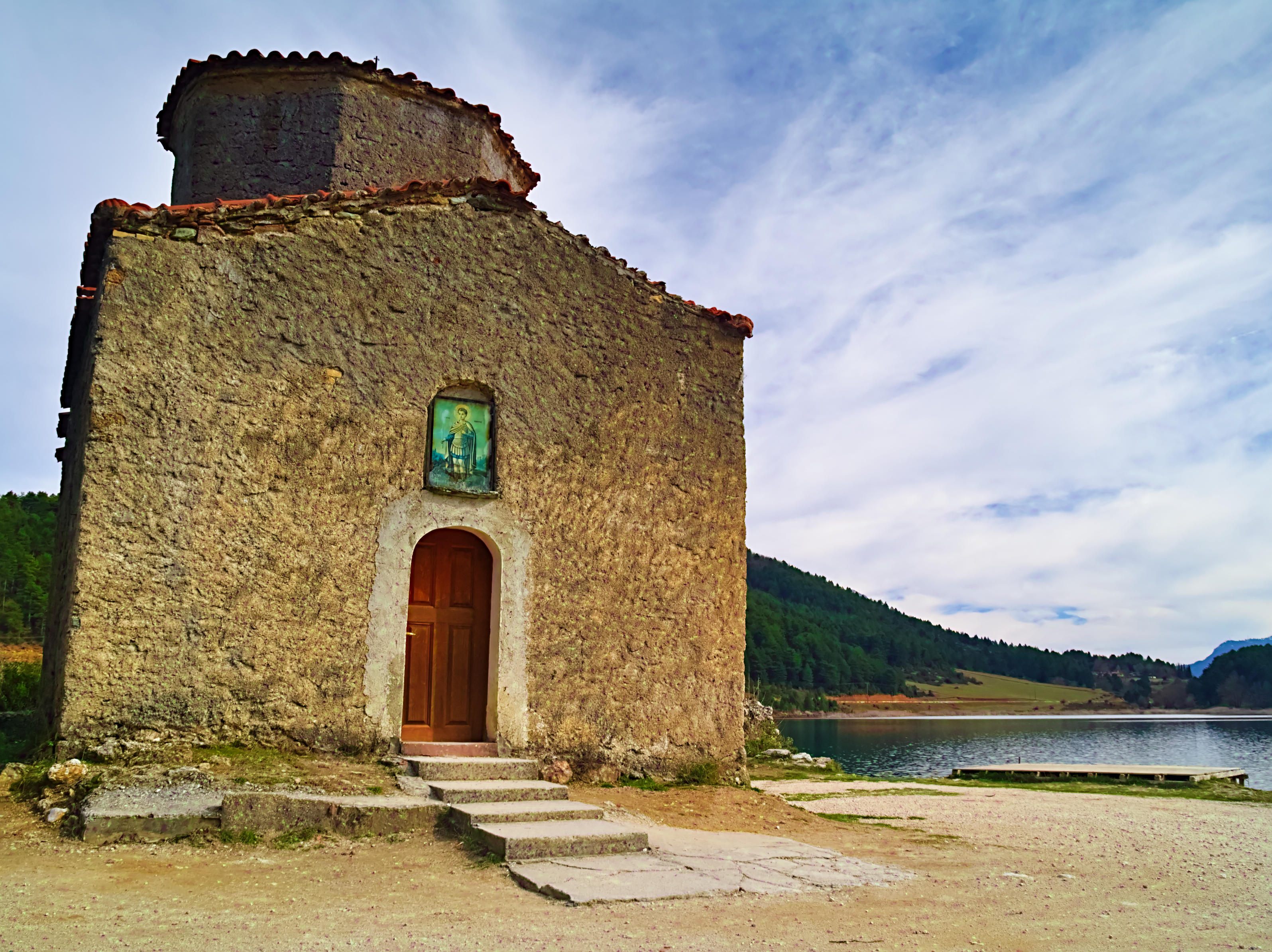
Still, no cake or bread has quite the same practical usage, or mystical whimsy, as fanouropita. One presbytera (priest’s wife) once told me that, desperate after the family dog went missing, she promised Fanourious 13 cakes if they somehow found him. When the dog was discovered, she stayed true to her word and dutifully baked every one of those cakes. A friend of my yiayia’s once baked fanouropita after her prayers to Fanourious resulted in the return a college class ring.
Pittas even has a friend who baked four fanouropitas—one for each of her children—so they would find a significant other. This somewhat desperate move is rooted in tradition. In certain areas of Greece, including Crete, Cyprus, Skiathos, and Florina, fanouropita is baked as a prayer for unwed girls to find a husband, and sometimes it is said that sleeping with a slice under your pillow will induce a dream of your future spouse.
Katie Bohren, who was born in Greece and now lives in South Carolina, claims Agios Fanourious as her patron saint. “I pray to him whenever I have a hard time about something,” she says, ever she first learned about him as a teenager. Beyond just helping her find lost items (she recently lost her cell phone after leaving it at a nearby liquor store, and recovered it soon after she offered up a prayer), Bohren says that Fanourious helps her find the strength to overcome hardship.
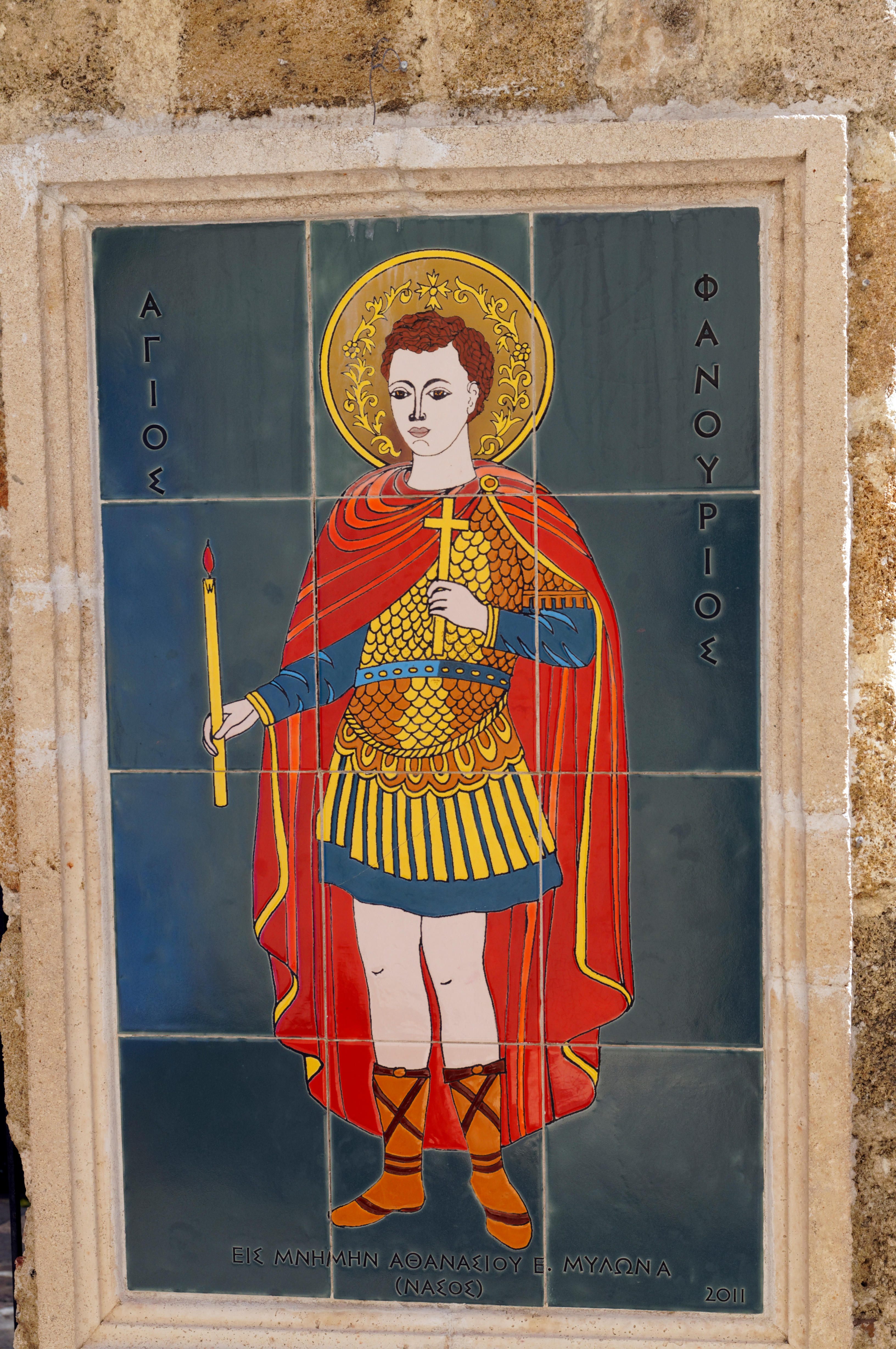
Bohren makes fanouropita every August 27, the saint’s name day, when it is traditional for parishioners to bake a cake and bring it to church to be blessed by the priest. As Greek cookbook author and food writer Diane Kochilas wrote in her cookbook Ikaria: Lessons on Food, Life, and Longevity from the Greek Island Where People Forget to Die, “almost everyone there has brought a rendition of this spiced, raisin- and nut-filled sweet, which the priest blesses then distributes to parishioners right after the ceremony is over.”
Like many cultural practices rooted in mysticism (or, as Pittas colorfully calls it, “yiayia-ology”), fanouropita has a practical side to it. Many women I talked to say they find praying to Fanourious an opportunity to calm their mind and focus, prompting them to consciously or subconsciously remember what happened to the lost item in the first place.
Personally, though, I believe in the divine power of cake. When I was in college, I lost my driver’s license. After looking for it everywhere, I started praying. A few days later, while moving out for the summer, I slid my bed away from the wall to break it down, and found my ID lying peacefully on the floorboards, staring up at me.
I baked a fanouropita the next day.
Fanouropita
- Prep time: 10 minutes
- Cook time: 35 minutes
- Total time: 45 minutes
- Makes one round cake
Ingredients
- 1 3/4 cup (210g) flour
- 1/2 teaspoon baking soda
- 1 1/2 teaspoon baking powder
- 1/4 teaspoon salt
- 1 teaspoon cinnamon
- 1/4 teaspoon cloves
- 1/2 cup (99g) neutral oil
- 1/2 cup (113g) water
- 1/2 cup (113g) orange juice
- 1/2 cup (99g) sugar
- 1 cup (113g) chopped walnuts
- Confectioners’ sugar, for topping
Instructions
- Preheat the oven to 350°F. Grease an 8” or 9” round cake pan.
- Whisk together the flour, baking soda, baking powder, salt, cinnamon, and cloves. In a separate bowl, whisk together the oil, water, orange juice, and sugar. Pour the wet ingredients into the dry and whisk gently, just until combined. Fold in the walnuts.
- Pour the cake batter into the prepared pan. Bake for 35 minutes until golden brown, or when a wooden toothpick poked into it comes out clean.
- Let the cake cool completely, then dust with confectioners’ sugar to serve.
Source: Atlas Obscura

